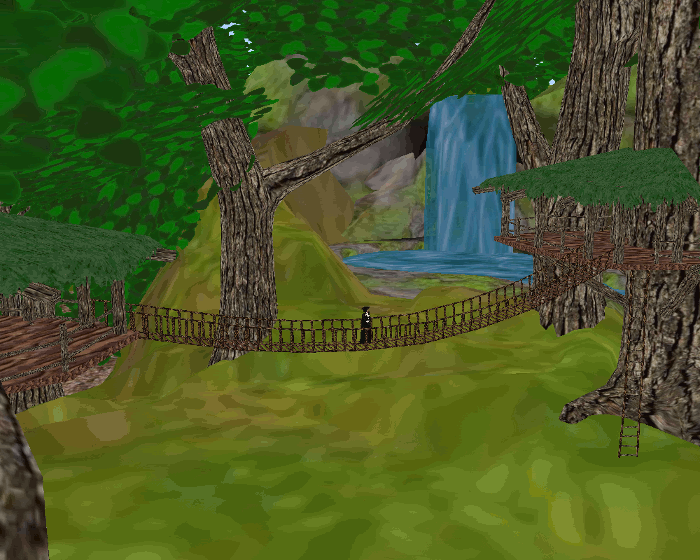"Nomansland Common"
Located in England's National Forest, is"Nomansland Common" is often supposed to be the site of "The Lady Katherine" the "Wicked Lady" on her ghostly rides, cloak flapping in the spectral wind, for it was here that she carried out her brief reign of terror. And because her stolen treasure was never recovered (or whoever recovered it never revealed their find) local legend has it that her shade is often seen in the trees near the house, trying to signal where she buried it.
~ Surrender Your Booty ~

~ Nomansland Common (sometimes simply called No Man's Land) is an area of common land in Hertfordshire, England to the south of Harpenden and the south-west of Wheathampstead
Geologically, the common is part of the Harpenden Dry Valley. In the last ice age a glacier dammed the river (which then flowed from Dunstable) south of Sandridge into St Albans Vale, creating a lake. When the dam melted and water drained away, it left the thin, stony soil still found on the common today. Nomansland has, throughout its history, been recognised for uniquely poor soil quality for agricultural purposes, although flint axe heads suggest that the common may have been cleared for grazing as long ago as 4000 BC.
In World War II attempts were made to plant crops on the common, but the common yielded less than half of the produce per unit area as other arable land, despite heavy use of fertilisers. After the end of the war, the land was re-seeded as grass and returned to recreational use.
The word "forest" comes from Middle English forest, from Old French forest (also forès) "forest, vast expanse covered by trees", believed to be a borrowing (probably via Frankish or Old High German) of the Medieval Latin word foresta "open wood". Foresta was first used by Carolingian scribes in the Capitularies of Charlemagne to refer specifically to the king's royal hunting grounds.
The term was not endemic to the Romance languages (e.g. native words for "forest" in the Romance languages evolved out of the Latin word silva "forest, wood"; cf. Italian, Spanish, Portuguese selva; Romanian; Old French selve); and cognates in Romance languages, such as Italian foresta, Spanish and Portuguese floresta, etc. are all ultimately borrowings of the French word. The exact origin of Medieval Latin foresta is obscure. Some authorities claim the word derives from the Late Latin phrase forestam silvam, meaning "the outer wood"; others claim the term is a latinisation of the Frankish word *forhist "forest, wooded country", assimilated to forestam silvam (a common practise among Frankish scribes). Frankish *forhist is attested by Old High German forst "forest", Middle Low German vorst "forest", Old English fyrhþ "forest, woodland, game preserve, hunting ground", and Old Norse fýri "coniferous forest", all of which derive from Proto-Germanic *furχísa-, *furχíþja- "a fir-wood, coniferous forest", from Indo-European *perkwu- "a coniferous or mountain forest, wooded height". Uses of the word "forest" in English to denote any uninhabited area of non-enclosure are now considered archaic.
The word was introduced by the Norman rulers of England as a legal term (appearing in Latin texts like the Magna Carta) denoting an uncultivated area legally set aside for hunting by feudal nobility (see Royal Forest).[3][4] These hunting forests were not necessarily wooded much, if at all. However, as hunting forests did often include considerable areas of woodland, the word "forest" eventually came to mean wooded land more generally.[citation needed] By the start of the fourteenth century the word appeared in English texts, indicating all three senses: the most common one, the legal term and the archaic usage. Forest near Rajgir, Bihar, India
Other terms used to mean "an area with a high density of trees" are wood, woodland, wold, weald, holt, frith and firth. Unlike forest, these are all derived from Old English and were not borrowed from another language. Some now reserve the term woodland for an area with more open space between trees.
~
~ RELATED PRODUCTS COMING HERE SOON
~ BANNER COMING HERE SOON ~

~ Legal Statement and Copy Rights Coming Soon~

